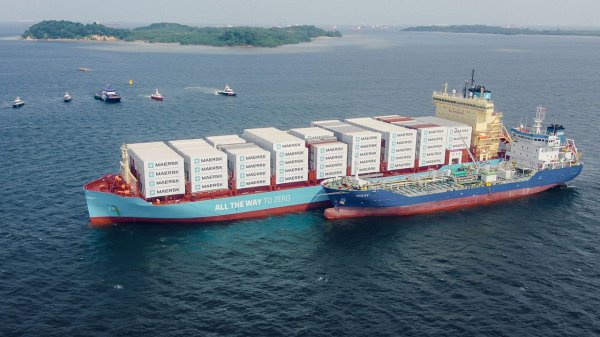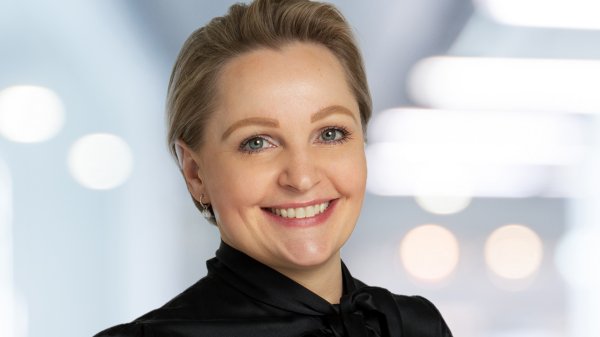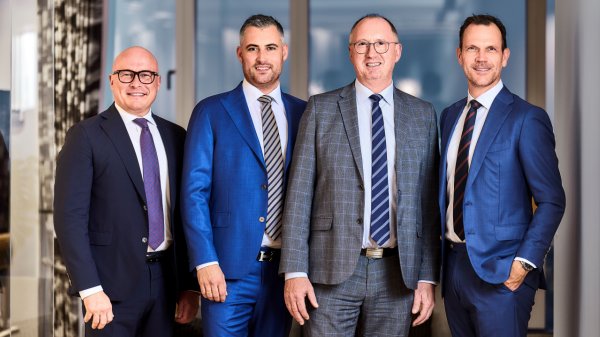NCL asks court to halt OW Bunker arbitration in bid to prevent double fuel payment
Cruise line argues it already paid the physical supplier for bunkers delivered.
Norwegian Cruise Line (NCL) has asked a federal court in Connecticut to halt the arbitration process that the liquidating trustee of O.W. Bunker USA Inc. (O.W.), Kelly Beaudin Stapleton of the OWB USA Liquidating Trust, has tried to initiate in London over an allegedly unpaid invoice for bunker fuel.
NCL claims in court documents, seen by Bunker Index, that it ordered bunkers from the now-defunct O.W. on October 8, 2014, for its vessel the Norwegian Spirit. O.W., through its related entity O.W. Bunker Malta Ltd, is then claimed to have subcontracted with Greek supplier EKO (a subsidiary of Hellenic Petroleum) to fulfil the order and perform the delivery, which was carried out on October 18, 2014.
According to NCL, O.W. forwarded an invoice to NCL for $694,548.44 on October 18, 2014, with payment due 30 days later, on November 17, and EKO issued three invoices to O.W. pursuant to its subcontract with O.W.
However, on November 14, three days before the payment due date, O.W. Bunker placed its U.S. subsidiaries in Chapter 11 bankruptcy and the invoices subsequently remained unpaid, NCL says.
NCL alleges that following O.W.'s bankruptcy filing, EKO notified the cruise line that it would arrest the Norwegian Spirit to enforce a claimed maritime lien for the provision of bunkers to the ship. To avoid the arrest and detention of the vessel, which NCL stresses was "fully loaded with thousands of passengers and crew", the company says it was "compelled to pay EKO for the order" and proceeded to remit $729,929.09 to the Greek supplier.
The amount, NCL says, represents the value of the bunkers delivered to the vessel plus the total amount set forth in the EKO invoices to O.W.
NCL states in its complaint: "Despite NCL's payment to EKO satisfying O.W.'s obligations to EKO, the Liquidating Trustee continues to demand that NCL pay O.W. the full amount invoiced by O.W. to NCL, $694,548.44, for the Order."
The liquidating trustee is said to have provided notice to NCL seeking to initiate arbitration proceedings in London, but NCL claims EKO's dispute resolution provision takes priority over the arbitration provision in O.W.'s general terms and conditions, and therefore renders the attempted arbitration invalid.
NCL explains that EKO's terms and conditions state: "This Agreement shall be governed by and construed in accordance with Greek law and any dispute which may arise in connection [therewith] shall be submitted exclusively to the jurisdiction of Piraeus Courts."
NCL goes on to note that its request for a declaratory judgment "is a dispute over NCL's satisfaction of O.W.'s obligations to EKO, the local fuel supplier, and whether NCL should pay twice for the same bunker Order".
NCL also mentions in its complaint that on May 20, 2017, the liquidating trustee arrested the Norwegian Spirit in France seeking to obtain security for its claim.
"The Liquidating Trustee vexatiously pursued the vessel arrest without prior notice to NCL[,] and NCL was compelled to provide security to the Liquidating Trustee to obtain the release of the vessel," NCL says.
"NCL satisfied O.W.'s contractual obligations to EKO by making payment for the Order directly to EKO. NCL's payment to EKO in satisfaction of O.W.'s obligation exceeds the amount O.W. claims from NCL," the vessel owner adds.
Double payment of bunkers
The double payment issue was highlighted in a previous case involving OW Bunker in a judgement handed down on May 11, 2016, by the English Supreme Court.
The court ruled that the owner of the vessel Res Cogitans should pay OW Bunker's assignee, ING Bank, in a case where OW Bunker acted as a trader rather than the physical supplier. The case did not directly address whether the physical supplier - which was never paid by OW Bunker - also has a right to make a claim against the vessel owner, thus leaving the status of supplier with outstanding payments unresolved and the buyer financially exposed to potentially being required to pay twice for the same fuel delivery.
Commenting on the issue last year, the International Bunker Industry Association (IBIA) said: "Looking at the various outcomes of legal proceedings evident in the wake of OW's demise so far, IBIA's legal working group has highlighted a decision (pending appeal) by the Federal Court of Canada in the Canpotex case might point to a more fair and balanced way forward.
"In the Canpotex case, the current ruling suggests all parties in the sales chain should get only what they originally bargained to get, meaning OW would only be entitled to its trader margin with the rest of the payment going directly to the physical suppliers. Crucially, the ultimate buyer would only make one payment corresponding to the sum contracted for the fuel supplied.
"Effective cooperation would result in suppliers being paid for their supply, traders being paid where they take title, brokers being paid their commission, and lenders being assured of their security for loans to suppliers and traders. Overall, when a customer makes payment, that customer must be assured that it will not have to make the payment more than once."
NCL claims in court documents, seen by Bunker Index, that it ordered bunkers from the now-defunct O.W. on October 8, 2014, for its vessel the Norwegian Spirit. O.W., through its related entity O.W. Bunker Malta Ltd, is then claimed to have subcontracted with Greek supplier EKO (a subsidiary of Hellenic Petroleum) to fulfil the order and perform the delivery, which was carried out on October 18, 2014.
According to NCL, O.W. forwarded an invoice to NCL for $694,548.44 on October 18, 2014, with payment due 30 days later, on November 17, and EKO issued three invoices to O.W. pursuant to its subcontract with O.W.
However, on November 14, three days before the payment due date, O.W. Bunker placed its U.S. subsidiaries in Chapter 11 bankruptcy and the invoices subsequently remained unpaid, NCL says.
NCL alleges that following O.W.'s bankruptcy filing, EKO notified the cruise line that it would arrest the Norwegian Spirit to enforce a claimed maritime lien for the provision of bunkers to the ship. To avoid the arrest and detention of the vessel, which NCL stresses was "fully loaded with thousands of passengers and crew", the company says it was "compelled to pay EKO for the order" and proceeded to remit $729,929.09 to the Greek supplier.
The amount, NCL says, represents the value of the bunkers delivered to the vessel plus the total amount set forth in the EKO invoices to O.W.
NCL states in its complaint: "Despite NCL's payment to EKO satisfying O.W.'s obligations to EKO, the Liquidating Trustee continues to demand that NCL pay O.W. the full amount invoiced by O.W. to NCL, $694,548.44, for the Order."
The liquidating trustee is said to have provided notice to NCL seeking to initiate arbitration proceedings in London, but NCL claims EKO's dispute resolution provision takes priority over the arbitration provision in O.W.'s general terms and conditions, and therefore renders the attempted arbitration invalid.
NCL explains that EKO's terms and conditions state: "This Agreement shall be governed by and construed in accordance with Greek law and any dispute which may arise in connection [therewith] shall be submitted exclusively to the jurisdiction of Piraeus Courts."
NCL goes on to note that its request for a declaratory judgment "is a dispute over NCL's satisfaction of O.W.'s obligations to EKO, the local fuel supplier, and whether NCL should pay twice for the same bunker Order".
NCL also mentions in its complaint that on May 20, 2017, the liquidating trustee arrested the Norwegian Spirit in France seeking to obtain security for its claim.
"The Liquidating Trustee vexatiously pursued the vessel arrest without prior notice to NCL[,] and NCL was compelled to provide security to the Liquidating Trustee to obtain the release of the vessel," NCL says.
"NCL satisfied O.W.'s contractual obligations to EKO by making payment for the Order directly to EKO. NCL's payment to EKO in satisfaction of O.W.'s obligation exceeds the amount O.W. claims from NCL," the vessel owner adds.
Double payment of bunkers
The double payment issue was highlighted in a previous case involving OW Bunker in a judgement handed down on May 11, 2016, by the English Supreme Court.
The court ruled that the owner of the vessel Res Cogitans should pay OW Bunker's assignee, ING Bank, in a case where OW Bunker acted as a trader rather than the physical supplier. The case did not directly address whether the physical supplier - which was never paid by OW Bunker - also has a right to make a claim against the vessel owner, thus leaving the status of supplier with outstanding payments unresolved and the buyer financially exposed to potentially being required to pay twice for the same fuel delivery.
Commenting on the issue last year, the International Bunker Industry Association (IBIA) said: "Looking at the various outcomes of legal proceedings evident in the wake of OW's demise so far, IBIA's legal working group has highlighted a decision (pending appeal) by the Federal Court of Canada in the Canpotex case might point to a more fair and balanced way forward.
"In the Canpotex case, the current ruling suggests all parties in the sales chain should get only what they originally bargained to get, meaning OW would only be entitled to its trader margin with the rest of the payment going directly to the physical suppliers. Crucially, the ultimate buyer would only make one payment corresponding to the sum contracted for the fuel supplied.
"Effective cooperation would result in suppliers being paid for their supply, traders being paid where they take title, brokers being paid their commission, and lenders being assured of their security for loans to suppliers and traders. Overall, when a customer makes payment, that customer must be assured that it will not have to make the payment more than once."

|
How to engineer and manage green shipping fuels | Stanley George, VPS
Effective management strategies and insights for evolving fuel use. |
|
|
|
||

|
Swedish government bans scrubber wastewater discharges
Discharges from open-loop scrubbers to be prohibited in Swedish waters from July 2025. |
|
|
|
||

|
MAN Energy Solutions achieves 100% load milestone for ammonia engine
Latest tests validate fuel injection system throughout the entire load curve. |
|
|
|
||

|
Petrobras secures ISCC EU RED certification for B24 biofuel blend at Rio Grande
Blend consisting of 24% FAME is said to have been rigorously tested to meet international standards. |
|
|
|
||

|
Stolt-Nielsen to fully control Avenir LNG with acquisition
Share purchase agreement to buy all shares from Golar LNG and Aequitas. |
|
|
|
||

|
Bureau Veritas supports launch of CIMC SOE's LNG bunkering vessel
Handover of Seaspan Energy's cutting-edge 7,600-cbm vessel completed. |
|
|
|
||

|
Methanol as a marine fuel | Steve Bee, VPS
How environmental legislation has driven the development of low-sulphur fuels and methanol-ready ships. |
|
|
|
||

|
Martin Vorgod elevated to CEO of Global Risk Management
Vorgod, currently CCO at GRM, will officially step in as CEO on December 1, succeeding Peder Møller. |
|
|
|
||

|
Dorthe Bendtsen named interim CEO of KPI OceanConnect
Officer with background in operations and governance to steer firm through transition as it searches for permanent leadership. |
|
|
|
||

|
Bunker Holding revamps commercial department and management team
CCO departs; commercial activities divided into sales and operations. |
|
|
|
||

